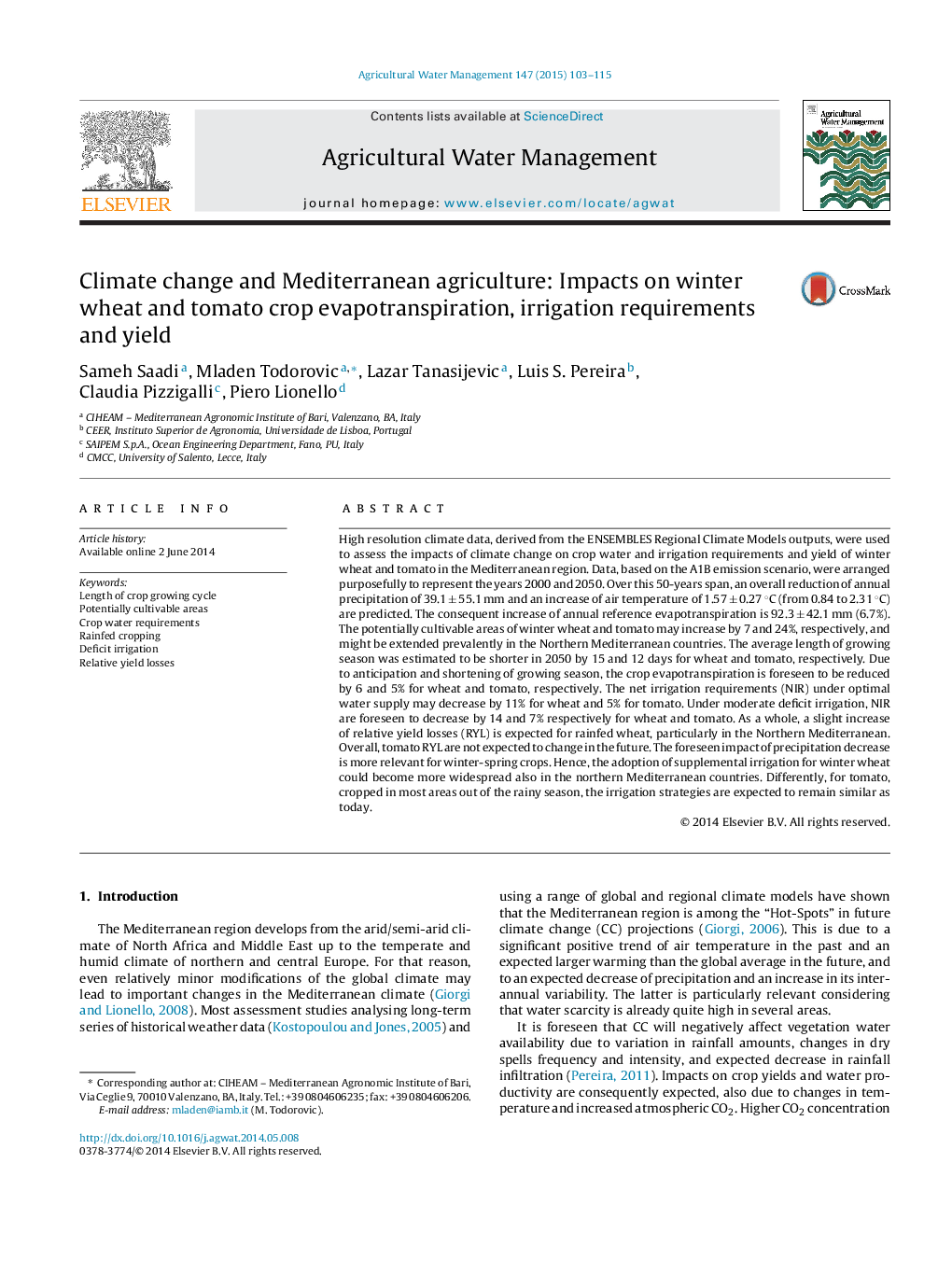| Article ID | Journal | Published Year | Pages | File Type |
|---|---|---|---|---|
| 4478578 | Agricultural Water Management | 2015 | 13 Pages |
•Impact of climate change will vary for different crops and areas of the Mediterranean region.•New cultivable areas might be extended prevalently in the Northern Mediterranean countries.•Tomato and winter wheat ET and NIR could be slightly reduced by 2050 due to the shortening of growing cycle.•The impact of precipitation decrease could be more relevant for winter-spring than for summer crops.
High resolution climate data, derived from the ENSEMBLES Regional Climate Models outputs, were used to assess the impacts of climate change on crop water and irrigation requirements and yield of winter wheat and tomato in the Mediterranean region. Data, based on the A1B emission scenario, were arranged purposefully to represent the years 2000 and 2050. Over this 50-years span, an overall reduction of annual precipitation of 39.1 ± 55.1 mm and an increase of air temperature of 1.57 ± 0.27 °C (from 0.84 to 2.31 °C) are predicted. The consequent increase of annual reference evapotranspiration is 92.3 ± 42.1 mm (6.7%). The potentially cultivable areas of winter wheat and tomato may increase by 7 and 24%, respectively, and might be extended prevalently in the Northern Mediterranean countries. The average length of growing season was estimated to be shorter in 2050 by 15 and 12 days for wheat and tomato, respectively. Due to anticipation and shortening of growing season, the crop evapotranspiration is foreseen to be reduced by 6 and 5% for wheat and tomato, respectively. The net irrigation requirements (NIR) under optimal water supply may decrease by 11% for wheat and 5% for tomato. Under moderate deficit irrigation, NIR are foreseen to decrease by 14 and 7% respectively for wheat and tomato. As a whole, a slight increase of relative yield losses (RYL) is expected for rainfed wheat, particularly in the Northern Mediterranean. Overall, tomato RYL are not expected to change in the future. The foreseen impact of precipitation decrease is more relevant for winter-spring crops. Hence, the adoption of supplemental irrigation for winter wheat could become more widespread also in the northern Mediterranean countries. Differently, for tomato, cropped in most areas out of the rainy season, the irrigation strategies are expected to remain similar as today.
